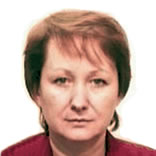The World Bank and the Liberian Government have begun training enumerators in preparations for the launch of the National Household Forest Survey, the Bank said in Monrovia over the weekend.
This survey will cover 3,000 households from 300 Enumeration Areas (EAs) in Liberia’s 15 counties.
These will be complemented by 300 community level questionnaires, one in each of the selected EAs.
Training of the enumerators is being done through the Liberia Institute of Statistics and Geo-Information Services (LISGIS) and the Forestry Development Authority (FDA).
And it is funded by the World Bank through its Forest Carbon Partnership Facility REDD+ Readiness Project implemented by the FDA.
This socioeconomic survey is to collect baseline data on households that live in or near forested areas and rely on forest products as part of their welfare and livelihoods, the World Bank said.
According to a World Bank press release, so far there is no credible data in Liberia that provides accurate estimates of local dependency on forests and this survey will assist in understanding how local populations value the forests and depend on it for livelihoods.
“This is a piece of pioneering work which will not only inform policies and programs that benefit forest dependent population in Liberia, but also the experience gained would be helpful for other countries, challenged by similar data constraints,” said World Bank Liberia Country Manager Larisa Leshchenko.

Larisa Leshchenko
Following completion of the survey, a systematic analysis of various important issues, including identification of incentives to conserve and utilize forests will be done. The results will ensure the crafting of policies and interventions to mitigate drivers of deforestation and forest degradation.
“Liberia’s forests are of key importance from the national and international perspectives. Generating accurate information is crucial for better decision-making and sustainable forest management, and the forestry survey will make a strong contribution in this direction,” FDA Managing Director C. Mike Doryen pointed out.
This survey will provide a holistic understanding of the role that forest ecosystems and products play in providing pathways out of poverty and information for the design of policies to achieve sustainable reduction in poverty and inequality.
The experience gained from conducting this survey will provide a customized tool, as well as practical guidance on applying it in other countries facing similar challenges.
“Enumerators and field workers must perform in accordance with all the set rules and standards so that you can proudly share in the success of this Household Forest Survey,” said LISGIS Director-General Francis Wreh.

Participants and officials in charge of the training
The National Household Forest Survey is the first of its kind in Liberia, and it will address a significant forest data gap for the country. The survey results will also help national authorities to design policies that would lead to raising incomes of remotely located households from forest related activities.
It will also incorporate gender aspects of forest use and management in development strategies; and strengthening household strategies to cope with shocks and unexpected setbacks such as food shortage and climate shocks.

